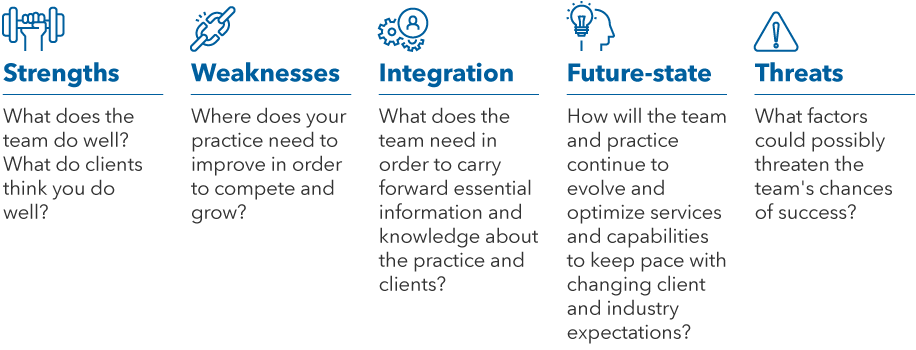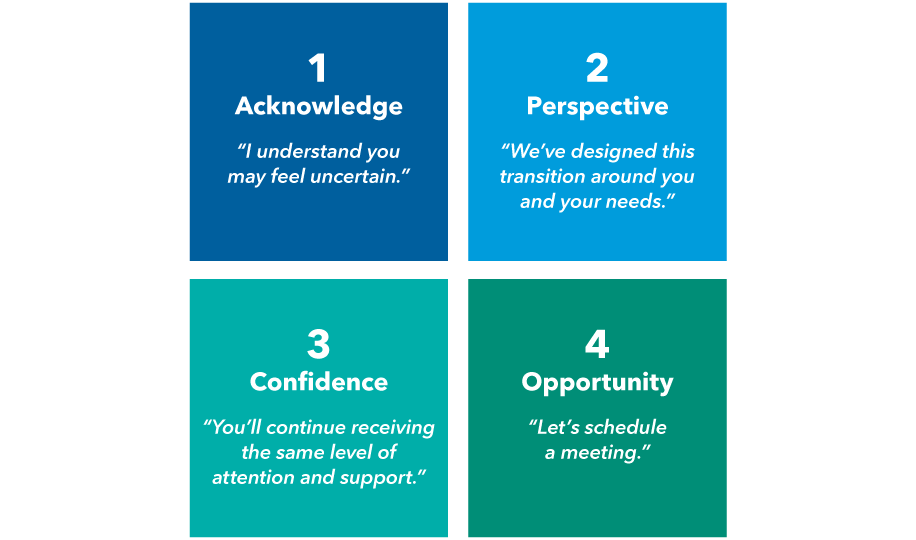If you haven’t already explicitly had a conversation with a potential internal successor to gauge their interest in buying the practice, consider doing so. Once you are both on the same page, it could make sense to officially groom that person for the top spot.
While there is no single right way to prepare an internal successor, it may help to set incremental career goals over time that lead to increasing levels of responsibility. This type of career path, along with additional incentives (for example, covering the tuition for a prospective successor’s master’s degree in taxation), can help you retain top talent.
Make regular check-ins or “stay” interviews a part of your overall employee engagement process to show these prospective successors you are invested in their success. Ideally, you would have some time (anywhere from five to seven years) to prepare this person, working together to organically transition client relationships and make the successor part of the everyday running of firm operations.
Look outside your firm for candidates. If you don’t have a viable internal candidate to succeed you, you may need to seek out an external buyer to serve as your successor. Working with an external successor — whether that’s selling your book of business to a peer practice or merging your team with a large registered investment advisor (RIA) or a broker-dealer — could be attractive because it may result in a quick exit and streamlined payout schedule.
One option could be connecting with a younger advisor looking at mature practices as a way to quickly build up a book of business. In fact, Cerulli says that nearly half of advisors surveyed reported that they are open to or actively looking for practices to acquire — a market demand that could result in advantageous deal terms for sellers.1
If you want to look beyond your own network, consider engaging the services of third parties to connect with these interested buyers. Some businesses offer matchmaking services connecting buyers and sellers of advisor firms. And large mega-RIAs are active buyers, steadily acquiring firms with client niches or other expertise in recent years.
“Whether you groom someone internally or bring in an outside advisor as your successor, it’s important that that individual shares your values and service mindset so that clients don’t suffer culture shock,” Grey says.
Ben Wong, a San Francisco-area advisor, says he considered several options when thinking about his own succession plan. Ultimately, he realized that selling to an outside advisor or to someone on his team wouldn’t provide what he saw as the optimal outcome for his ensemble team. Additionally, he said that he wanted to continue serving clients, just not run a business. The result was him selling to and consolidating his billion-dollar advisory business with Mariner Wealth Advisors last year.








